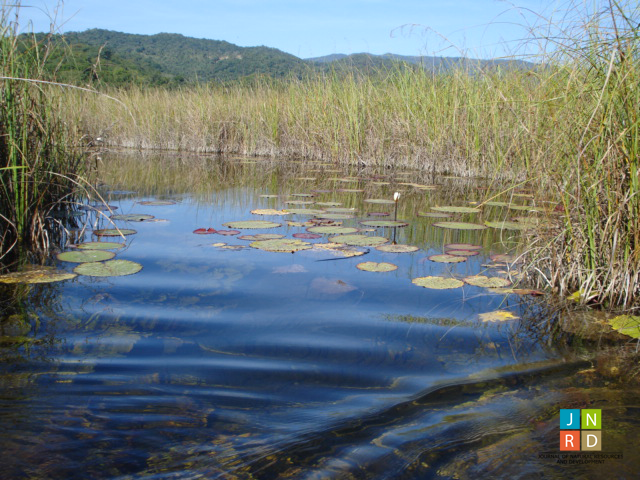Tracing Anthropogenic Disturbances of a Wetland Through Carbon and Nitrogen Isotope Analyses in Sediments
Main Article Content
Abstract
In this study, we estimated the depth profiles of nutrients in the natural wetland “Ciénega Tamasopo” (Central Mexico) located in the Neotropic region. The concentration profiles of Corg, NT, Corg/NT ratios and isotopic composition (δ13C, δ15N) were determined in sediment cores collected at five sites throughout the wetland to estimate the contribution of nutrient sources to the sediments through analysis of profile shape. The results showed a recent enrichment in organic matter in the upper sediment layers at three sites (S1 to S3). Changes in the Corg/NT ratios with the sediments depth suggested that organic matter is autochthonous at the pristine sites (upper part of the wetland) characterized by an abundant coverage of vegetation. The isotopic (δ13C, δ15N) profiles (-35 to -25.8 ‰ for δ13C and 0.7 to 4.1 ‰ for δ15N) supported these conclusions and pointed to the entrance of allochthonous materials through local perturbations as a cause of changes in wetland productivity at the lower part. Analysis of isotopic composition can be used to evaluate trace productivity changes in tropical wetlands exposed to anthropogenic perturbations in this area.
Article Details
Issue
Section

This work is licensed under a Creative Commons Attribution-NonCommercial-NoDerivatives 4.0 International License.

